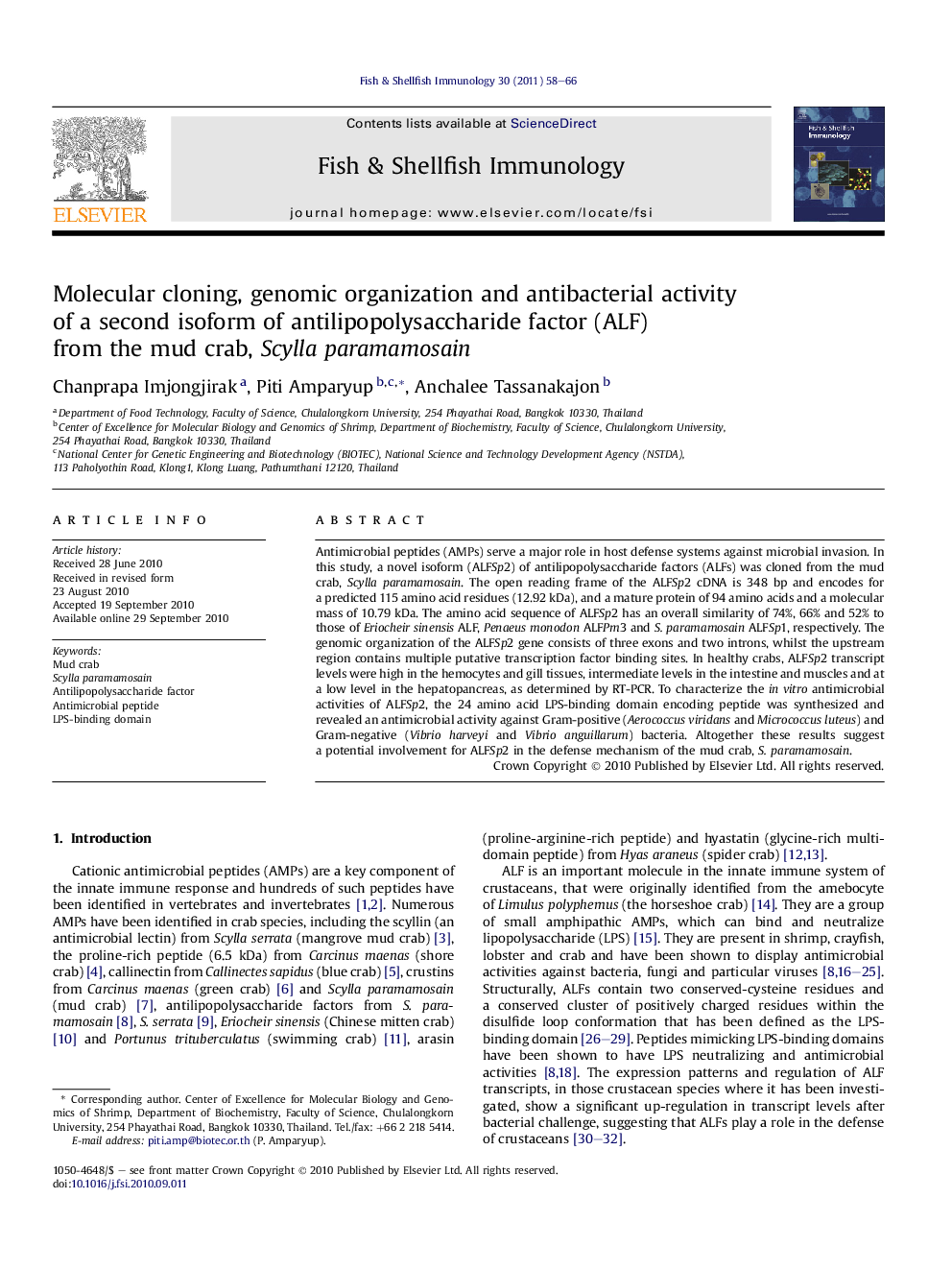| Article ID | Journal | Published Year | Pages | File Type |
|---|---|---|---|---|
| 2432705 | Fish & Shellfish Immunology | 2011 | 9 Pages |
Antimicrobial peptides (AMPs) serve a major role in host defense systems against microbial invasion. In this study, a novel isoform (ALFSp2) of antilipopolysaccharide factors (ALFs) was cloned from the mud crab, Scylla paramamosain. The open reading frame of the ALFSp2 cDNA is 348 bp and encodes for a predicted 115 amino acid residues (12.92 kDa), and a mature protein of 94 amino acids and a molecular mass of 10.79 kDa. The amino acid sequence of ALFSp2 has an overall similarity of 74%, 66% and 52% to those of Eriocheir sinensis ALF, Penaeus monodon ALFPm3 and S. paramamosain ALFSp1, respectively. The genomic organization of the ALFSp2 gene consists of three exons and two introns, whilst the upstream region contains multiple putative transcription factor binding sites. In healthy crabs, ALFSp2 transcript levels were high in the hemocytes and gill tissues, intermediate levels in the intestine and muscles and at a low level in the hepatopancreas, as determined by RT-PCR. To characterize the in vitro antimicrobial activities of ALFSp2, the 24 amino acid LPS-binding domain encoding peptide was synthesized and revealed an antimicrobial activity against Gram-positive (Aerococcus viridans and Micrococcus luteus) and Gram-negative (Vibrio harveyi and Vibrio anguillarum) bacteria. Altogether these results suggest a potential involvement for ALFSp2 in the defense mechanism of the mud crab, S. paramamosain.
